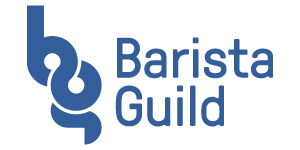Dive Into Bloom 2020 Mexico
by Jessika Heredia Sosa
I had the pleasure to serve in the realization of the first BG event in Spanish: Bloom México! We saw great diversity in the participation — from stakeholders at various parts of the value chain and other professionals. They came together and spoke about the event themes of inclusion and sharing examples of special education schools and job integration in cafes; the role of women producers; different types of discrimination; and challenges, learning, and successful experiences of a cooperative.
In a conversation about living income, a panel of three coffee professionals presented their thoughts and experiences followed by a live Q&A.
1st. Panelist: Attorney Jorge Méndez (Secretariat for conciliation and arbitration)
Mr. Méndez explained how COVID-19 has affected the labor market in Mexico. He mentioned that currently there are high rates of unemployment and layoffs. For example, wages in Mexico are based on the minimum wage as decided by the government. This wage doesn’t cover the needs of the baristas and hospitality workers and he suggested that a solution can be found in wage negotiation and through conversation between employers and employees. Employers should consider it important to have workers under social security, he said.
2nd. Panelist: Barista Erika Chagoya (GRADIOS CAFÉ)
With COVID-19 changing business models, Erika told us about the adaptations and adjustments she had to carry out as a businesswoman in her coffee shops. And how health and emotional support have helped her in these difficult times.
3rd. Panelist: Lic. Héctor García (AMCCE)
Hector talked about the benefits of training, including benefits to salary and professional improvement, for baristas. He described how to raise the status of the trade through a comprehensive training program, what the current options for this are, and how that can play out.
This session was hosted by Yarismeth Barrientos, a barista representing the community in México. I asked her to share some words about her option in this topic, and she shared below.
“The average wage for baristas does not promote a good quality of life. As long as they continue to think that it is a temporary job, for adolescents or young adults while they study, the barista will not be able to generate a life project that includes independence, quality of life for them and those who depend on them, or access to training without being at the expense of the growth that the company wants to grant. And so it is impossible for the barista to develop professionally to meet the expectations of the WHOLE coffee production chain as the last hand and the last voice that represents the effort of all those involved.”
Surely the conversation has just begun, we are sure that continuing to learn more about the subject and sharing with respect will lead us to improve the conditions of the baristas and consequently, impact the entire value chain.




